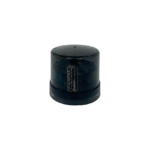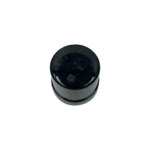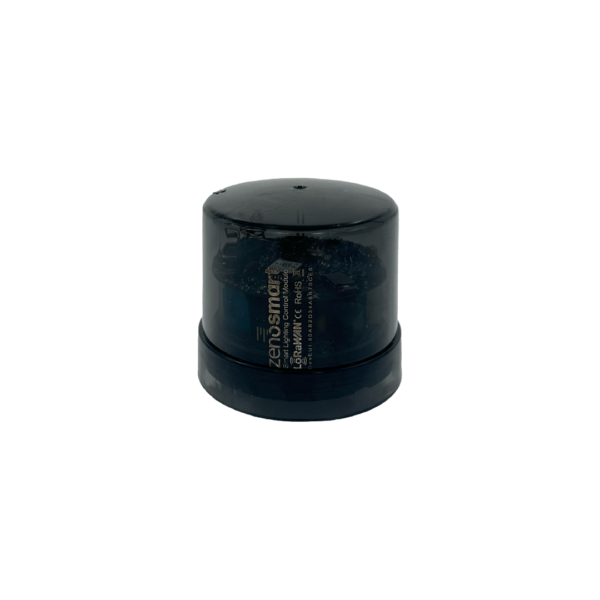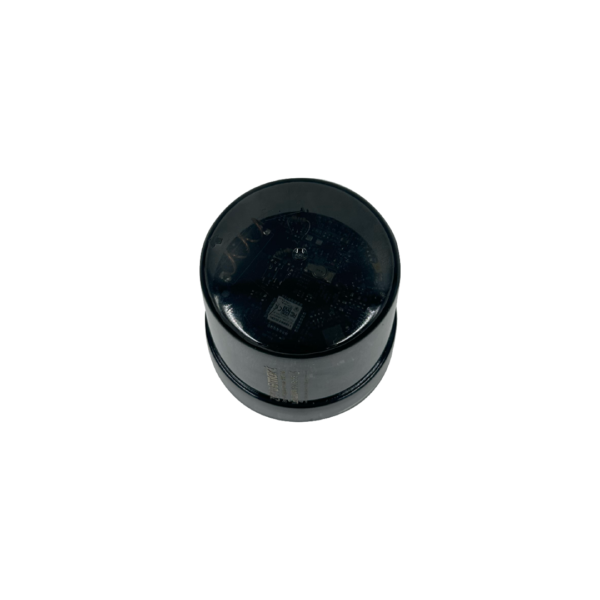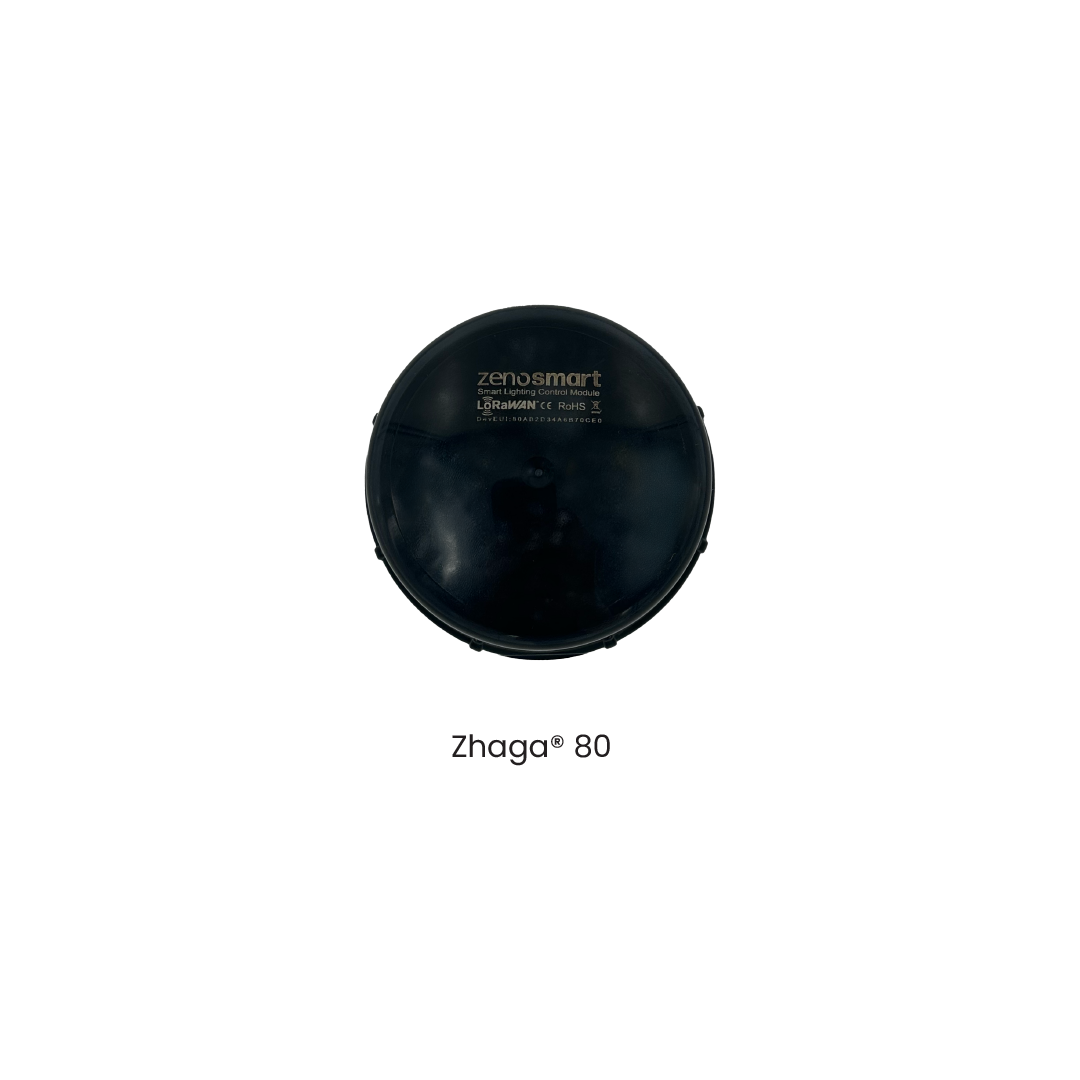LoRaWAN® Luminaire Controller Nema
The LoRaWAN® Luminaire Controller NEMA is a compact and modern wireless control device designed to facilitate the remote management of LED lighting systems. Thanks to its NEMA-compliant connector, it can be easily integrated into street lighting modules. The device operates with low-power wide-area networks (LPWAN) such as LoRaWAN®, NB-IoT, and LTE-M, and provides precise lighting control through DALI / DALI-2 interfaces.
Its durable IP67-rated enclosure ensures high protection against harsh environmental conditions, while allowing the device to be managed both in the field and via cloud-based platforms. With 0–10V, 1–10V, and DALI-2 control interface options, the system offers flexibility and can operate autonomously based on predefined schedules, ambient light levels, and adaptive lighting scenarios.
To enhance energy efficiency and optimize system performance, it can monitor electrical parameters such as voltage, current, power, power factor, and frequency. Additionally, it provides advanced features such as surge and tilt detection, optional light level sensing, geolocation tracking, and configuration via Bluetooth.
With its ease of use, secure communication (AES-128 encryption), and versatile management capabilities, it offers an ideal solution for urban lighting infrastructures.
- Product Features
- Technical Drawing
- Files
- FAQ
| Category | Parameter | Specification |
|---|---|---|
| Supply | Power supply | 100–240 VAC 0.2 A (rated load up to 15 A) |
| Peak power consumption | 3 W (Maximum) | |
| Surge protection | Built-in surge protection circuit | |
| Current protection | Built-in overcurrent protection circuit with auto reset | |
| Communication | Network interface | LoRaWAN® 1.0.4 Class C / NB-IoT (3GPP LTE Release 14 Cat-NB1 & Cat-NB2 compliant) |
| RF frequency | 868 / 915 / 923 MHz (LoRaWAN) / B3, B8, B20 (1710–1880, 880–960, 791–862 MHz) | |
| Rx sensitivity | -137 dBm @ 125 kHz BW SF12 (LoRaWAN) / -108 dBm (Cat-M1 low band), -107 dBm (mid band) | |
| Tx power | Up to +22 dBm (LoRaWAN, depending on region) / Up to +23 dBm (NB-IoT) | |
| Network security | Encrypted communication based on AES-128 security keys / APN, VPN support | |
| GPS | GPS/GLONASS/BeiDou/QZSS | |
| Firmware update (OTA) | Bluetooth and LoRaWAN® | |
| Bluetooth | Supported (Optional) | |
| Interfaces | DALI control & power supply | Controls up to 4 DALI ballasts with internal 15V DC power supply |
| Analog output | 0–10 V or 1–10 V analog output | |
| Logical signal input (LSI) | 1 × 0–24V configurable logic input (analog/digital), dim levels etc. | |
| Sensors | Light sensor | Integrated, configurable threshold |
| Tilt sensor | 2-axis tilt sensor | |
| Lamp Control | Dimming range | 0–100% (linear or logarithmic depending on control gear settings) |
| Control interface | DALI-2 / DiiA (IEC 62386) / D4i / 0–10 V / 1–10 V analog | |
| Metering | Built-in parameters (non D4i drivers) | A, V, W, Wh, WB, Wfund, PF, lamp-on time, sag, swell |
| D4i reported parameters | V, W, Wh, PF, lamp-on time, and others (depending on control gear specs) | |
| Measurement accuracy | ±0.5% for built-in measurement circuit | |
| Output Switch | Mechanical contact relay | 5A (100,000 operations) |
| Solid state relay | 2A (with zero-cross detection) | |
| Without switching output | No switching output option available | |
| Timing | Real Time Clock (RTC) | Yes, super capacitor backup (up to 15 days) |
| Environmental | Ingress protection | IP66 (IEC 60529) |
| Operating temperature | -20 °C … +60 °C | |
| Mechanical | Standard | ANSI C136.41 2013 |
| Pins & positions | 5 or 7 pins & 3 pins power contacts; 2 or 4 pins dimming and signal contacts | |
| Weight & dimensions | 150 g / Ø 76 mm × 70 mm (height × diameter) | |
| Base & dome material | High-temperature-resistant PBT (polybutylene terephthalate) & anti-UV, impact-resistant polycarbonate | |
| Compliance | Standards | EN 61347-1, EN 61347-2-11, EN 300220, EN 62368, EN 301489, EN 62479, EN 50581 |
| Certifications | CE |
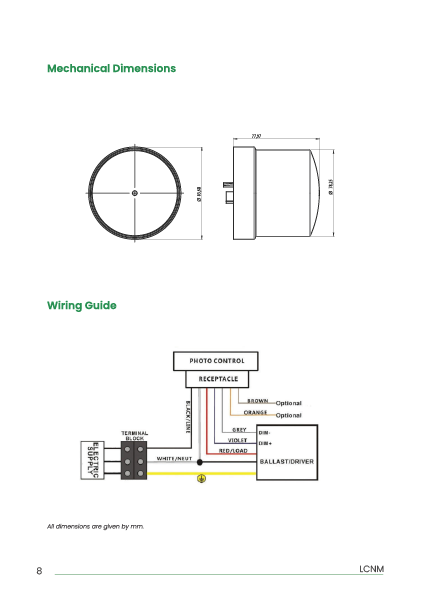
1. What lighting systems is the LoRaWAN® Luminaire Controller NEMA compatible with?
The device is NEMA-compliant and works seamlessly with modern LED luminaires. It supports 0–10V, 1–10V, and DALI / DALI-2 interfaces, making it flexible for various street lighting applications.
2. How is the device managed and configured?
The luminaire controller can be managed both locally in the field via Bluetooth and remotely through cloud-based platforms. It also supports autonomous operation using predefined schedules, ambient light levels, or adaptive lighting scenarios.
3. What additional monitoring and protection features does the controller offer?
The device can monitor key electrical parameters such as voltage, current, power, power factor, and frequency. It also includes advanced features such as surge and tilt detection, optional light level sensing, geolocation, and AES-128 encrypted secure communication.

